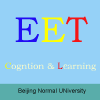-
Sleep and learning
普通类 -
- 支持
- 批判
- 提问
- 解释
- 补充
- 删除
-
-
Sleep and Learning
DOES GETTING A GOOD NIGHT’S SLEEP play a crucial role in maximizing the performance and acquisition of learned tasks? Is there a correlation between sleep and remembering? There have been several hypothesis that suggest the importance of sleep and learning. This report will give a brief overview of sleep and learning research.

-
Research on Sleep and Memory Retention
Investigations into the correlation of brain activity and sleep have been carried out on humans as well as other mammals throughout history. Rapid Eye Movement (REM) measurement, in addition to other brain wave recordings during a particular stage of sleep, have documented neuronal activity to be the same as the awake state (Poe, Nitz, & McNaughton, 2000).
One recent study found certain brain cells (“place cells”) to be more active in the hippocampus portion of the brain during REM sleep, suggesting that memory functions may be active during sleep, perhaps strengthening memory traces linked to recent experience while eroding traces linked to more remote activities. However, there was no data to support this "remembering" hypothesis (Siegel, 2001).-
Sleep and Performance of Learning
There is evidence, however, to show a strong correlation between sleep disruption before learning that affects performance in learning tasks. Sleep loss, whether it is due to a loss of concentration or a disruption of sleep, likewise has been documented to impair performance (Pavildes & Winston, 1989). Research suggests that such interruptions interfere with certain connections within the brain (Bonnet, 2000).

-
Conclusion
While the amount of sleep a learner gets may not affect their memory per se, it may have an effect on learning. Sleep is one of the major elements, along with nutritional status, ambient temperature, level of stress, and blood oxygenation, that have an effect on the ability to learn (Bonnet, 2000). If you want to have maximum learning potential, make sure you get a good nights sleep.
-
author
Poe, G.R., Nitz, B.L., McNaughton, C.A., Barnes, Brain Research. (2000), 855, pp. 176.
Siegel, Jerome M., The REM Sleep-Memory Consolidation Hypothesis (2001) http://www.npi.ucla.edu/sleepresearch/science/1058full.html
Pavildes, C. and Winston, J. Neuroscience, (1989) 2907, pp. 9.
Bonnet, M.H., Principles and Practice of Sleep Medicine, Kryger, M.H., Roth, T., Dement, W.C., Eds. (Saunders, Philadelphia, ed. 3, 2000), pp. 53-71.Adam Eisenberg ,Undergraduate Student ,SDSU Educational Technology
-
-
- 标签:
- sleep
- memory
- performance
- correlation
- bonnet
- 2000
- learning
- rem
- brain
- hypothesis
- pp.
-
加入的知识群:



学习元评论 (0条)
聪明如你,不妨在这 发表你的看法与心得 ~